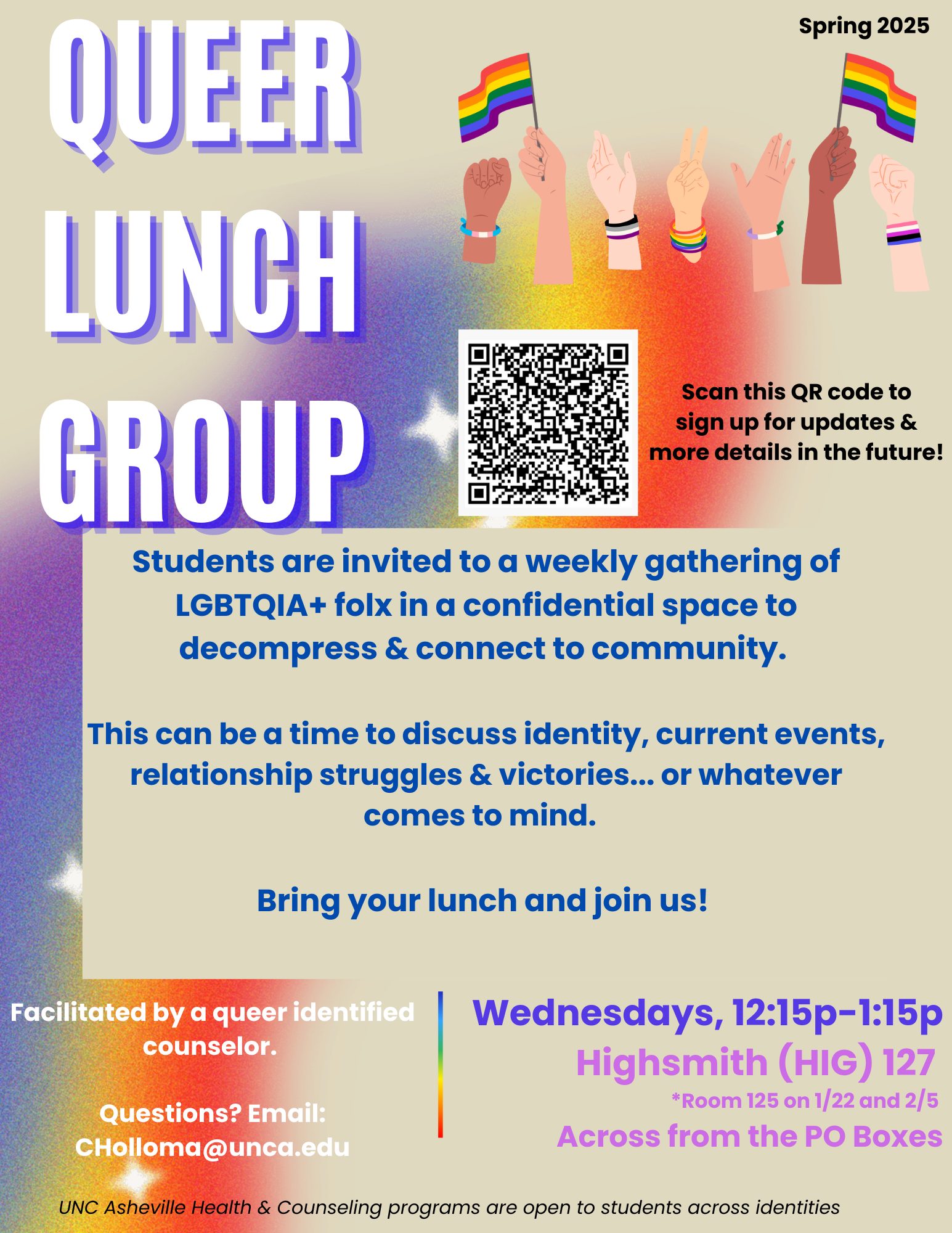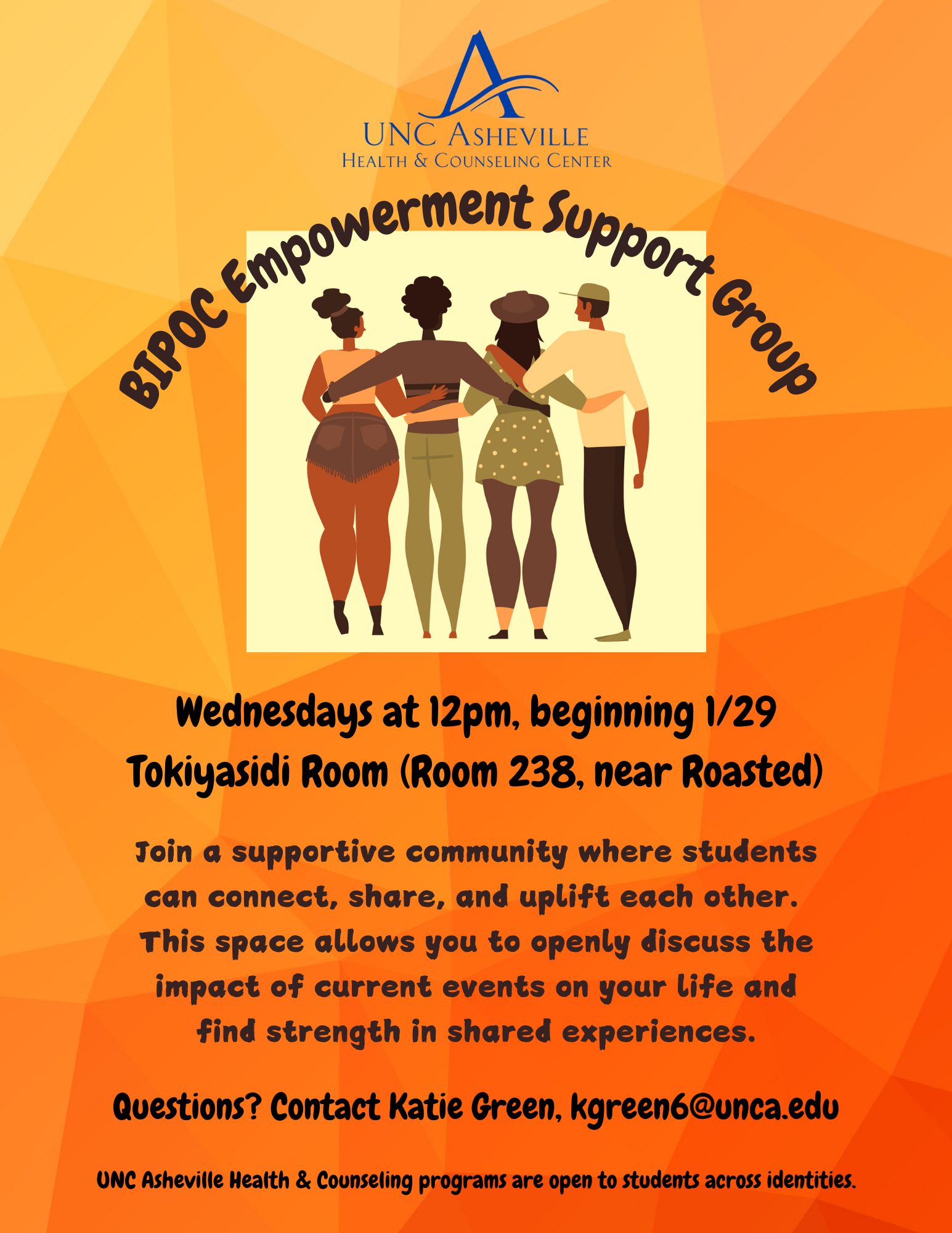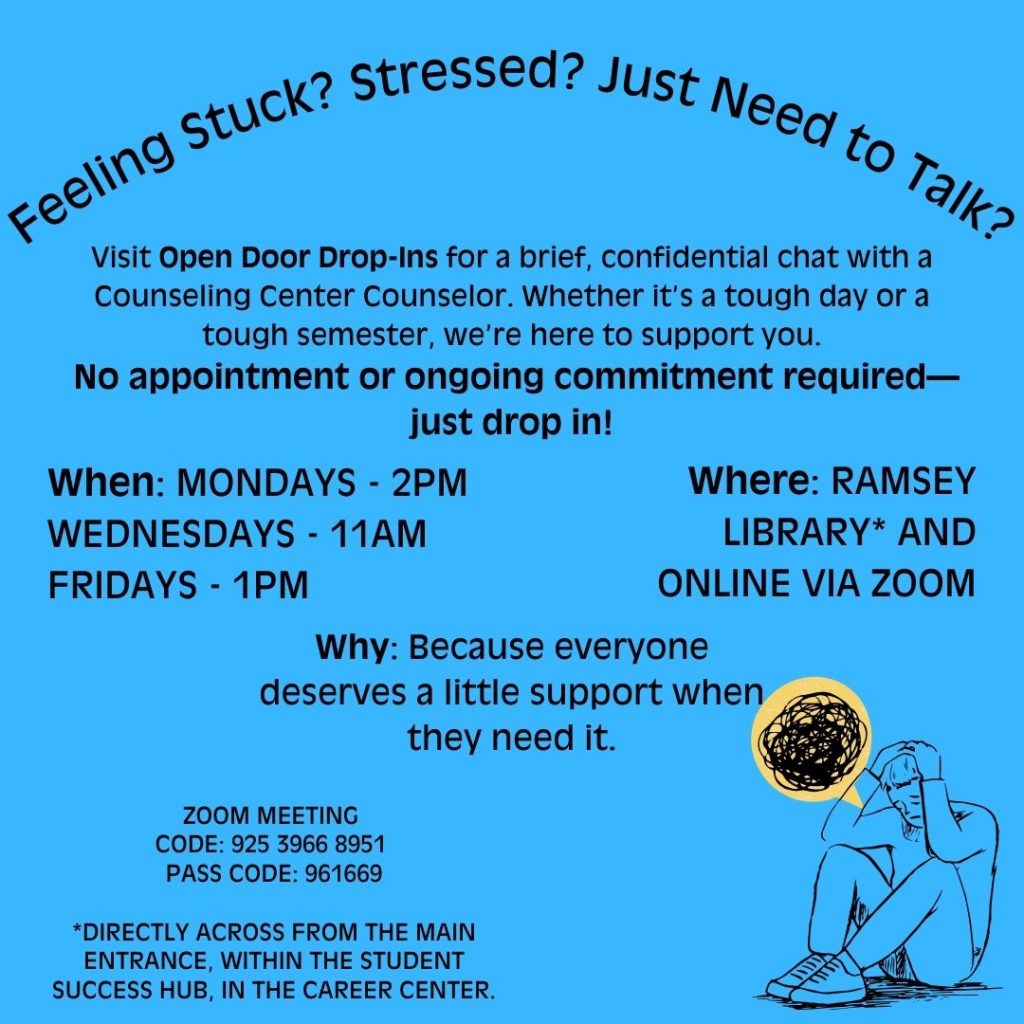Counseling offers a safe and confidential space for students to openly discuss their mental health concerns. Our team of mental health professionals offers short-term, goal-oriented individual counseling sessions. Additionally, we often develop and offer group counseling opportunities depending on the demand for services.
Individual counseling appointments are free of charge and generally last 50 minutes per session. Students are eligible for up to 16 counseling sessions per academic year
We treat students for a wide variety of issues, including but not limited to anxiety, depression, substance use/misuse, anger, bipolar disorder, and relationship issues. Due to the high service demand, our center operates from a solution-focused, brief counseling model. While this approach effectively addresses many concerns, there may be instances where issues surpass the scope of our services. In such cases, you and your counselor may explore off-campus resources better suited for intensive or longer-term, ongoing care.
Counseling Center Services include:
- Individual Counseling
- Group Support
- Open Door Drop-In Sessions
- LGBTQ+ & Transgender Support Counseling
- Psychiatric Evaluation & Medication Management
- Recovery Coaching & Counseling
- Substance Abuse Assessments
- Visits Related To Gender Exploration
If you are experiencing a life-threatening or traumatic event during regular business hours, 8 a.m. – 4:30 p.m. Monday – Friday, call us immediately at 828.251.6520 or come to our office for crisis services.
For after-hours mental health support, contact 911 or Buncombe County Mobile Crisis Management at 888.573.1006 or Protocall (after hours) at 828.251.6520 and press #4.
How Do I See a Counselor?
Create an account on your student health portal
This is where you will fill out all necessary paperwork to be seen at the Health & Counseling Center.
Call and schedule your Needs Assessment
Call our office at 828.251.6520 to schedule a Needs Assessment.
Complete the Needs Assessment questionnaire and Consent for Treatment
Must be completed through the student health portal before conducting your appointment.
Please cancel or reschedule your appointments 24 hours in advance. A missed appointment/no-show fee will be added to your account. This no-show fee policy ensures that our campus resources are used most effectively.
What happens after my Needs Assessment?
You will be contacted within the week of your Needs Assessment with recommendations based on your needs. You and your counselor will work together to find the most effective services for your needs. Recommendations may include individual counseling, group counseling, or off-campus resources.
To ensure that all students are addressed in a timely manner, Counseling Services provides time-limited solution-focused therapy. Because of this, some student issues may be beyond the scope of what Counseling Services can offer in terms of the number of visits per semester. If we cannot provide the specialized services you need, we will assist you in connecting with a provider in the community that will be a more appropriate fit.
Counseling Services Information
Counseling Practicum/Internship
The counseling practicum and internship program at UNC Asheville is a comprehensive experience in college counseling. Students will have the opportunity to work one-on-one and in groups with clients experiencing a range of clinical issues typical of a college or community mental health setting. They will carry their own client caseload, develop and conduct groups (e.g., DBT group), provide outreach programming to the university community, conduct intake assessments, and participate in group and individual supervision weekly with our Clinical Director, Katie Green, LCSW, LCAS. They will also gain experience with electronic medical records and knowledge of higher education processes.





